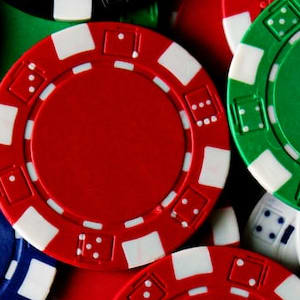deal a good hand: Idiom Meaning and Origin
What does ‘deal a good hand’ mean?
The idiom "deal a good hand" means to provide someone with a favorable or advantageous situation or opportunity.

Idiom Explorer
The idiom "lend a hand" means to offer assistance or help someone with a task or problem.
The idiom *hot hand* refers to a streak or period of success or good fortune. It is often used in sports to describe a player who is performing exceptionally well for a certain period of time.
The idiom "hold the cards" means to have the control or power in a situation.
The idiom "helping hand" refers to offering assistance or support to someone who is in need or experiencing difficulties.
The idiom "have one's hand out" means to ask for money or help from someone, usually in a demanding or pushy manner.
The idiom "have a handle on" means to have a good understanding or control over something.
The idiom "have a hand in" means to be involved or to play a part in something.
The idiom "hand someone their cards" means to terminate someone from their job or position, usually due to poor performance or failure to meet expectations.
The idiom "hand someone his hat" means to defeat or humiliate someone decisively.
Cracking the Code
The idiom "deal a good hand" comes from the game of poker and is commonly used to mean providing someone with favorable circumstances or advantageous opportunities. It signifies being in control of a situation and having the ability to give someone beneficial resources or advantages.
In poker, the dealer is responsible for giving out the cards to the players. When a player is dealt a good hand, it means they have received a favorable combination of cards that increases their chances of winning the game. The idiom uses this concept to apply it to situations beyond the game itself.
The origin of this idiom can be traced back to the mid-19th century when poker became popular in the United States. As the game grew in popularity, so did the use of related idioms in everyday language. Poker provided a rich source of metaphors that were widely adopted and incorporated into various contexts.
"Deal a good hand" gained prominence as an idiomatic expression in the late 19th and early 20th centuries. Its usage extends beyond card games and is often applied to situations where someone has the ability to influence or control outcomes in a positive way. For example, a manager who selects capable and competent team members is said to have dealt a good hand in terms of staffing.
This idiom resonates with people because it taps into the universal desire for favorable circumstances and opportunities. The metaphorical application of the card game concept allows for a broader understanding and application of the idiom in various contexts.
While "deal a good hand" primarily refers to someone providing advantageous circumstances or opportunities, it can also be used in a negative sense. In this context, it suggests manipulating or controlling a situation to the detriment of others. For instance, a manager who intentionally assigns difficult projects to certain employees is said to have dealt them a bad hand.
The idiom "deal a hand" is closely related to "deal a good hand". In the game of poker, "deal a hand" simply means the act of distributing the cards. It is a neutral term that does not carry any connotation of favorable or unfavorable circumstances. However, in the context of the idiomatic expression "deal a good hand", it emphasizes the action of providing someone with a favorable combination of cards that increases their chances of winning.
Similarly, the idiom "deal a bad hand" is the opposite of "deal a good hand". It refers to providing someone with an unfavorable combination of cards that decreases their chances of winning. In a broader sense, "deal a bad hand" can also be used to describe situations where someone is given a disadvantageous set of circumstances or opportunities.
The idiom "deal a good hand" draws its origins from the game of poker and symbolizes providing someone with favorable circumstances or advantageous opportunities. Its usage extends beyond card games to encompass a variety of situations where an individual has the ability to influence outcomes positively. This idiom reflects our universal desire for favorable circumstances and the potential for individuals to affect the outcome of a given situation. Whether used in a positive or negative sense, this metaphorical expression continues to resonate with people across various contexts.
Example usage
Examples of how the idiom "deal a good hand" can be used in a sentence:
- 1. Despite facing several challenges, the manager dealt a good hand by assembling a talented and motivated team.
- 2. The politician's speech dealt a good hand, effectively convincing the audience to support her campaign.
- 3. In the game of poker, luck was on my side as the dealer dealt a good hand and I won the round.
More "Gambling" idioms



